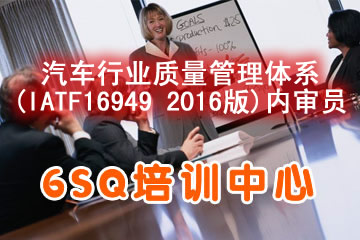第七十二篇 Measurement Widgets
本帖最后由 小编D 于 2012-11-27 14:24 编辑
请对以下文章有翻译兴趣的组员留下你的预计完成时间和邮箱地址,以便小编登记翻译者信息以及文章最终完成时间
翻译:ccsspp454 校稿:275641119
Measurement Widgets
测量小工具
Our dependence on tools comes with a stiff price
我们对工具的依赖常常伴随昂贵的代价
Editor’s note: Umberto Tunesi is a new columnist for Quality Digest. He brings his auditing expertise to bear on a surprising range of subjects, and we’re happy to add his European perspective to our mix. “I realize I’m being tough on the ISO/TS 16949 and AIAG manual writers, as well on performance-monitoring criteria,” he tells us, “but I guess I wouldn’t be writing for QD if I weren’t such a nasty guy. For centuries, my family’s motto has been ‘Crazy but just.’ ” We think he’ll fit in pretty well around here.
编者注解:安伯托图内西是质量文摘一名的新专栏作家。他带来他的与广泛主题有关的审计专业知识,我们很乐意在我们杂志来增加他的欧洲观点。“我认识到我对ISO/TS16949和美国汽车工业行动集团手册的编辑很严格,在性能监测基准方面也是一样”,他告诉我们“但我认为我不能为质量文摘写作,如果我不是那么令人讨厌的话。几世纪以来,我家族的座右铭就是“疯狂但公正”,我们认为他将非常适合这里。
Where I was born, in a town close to Milan, Italy, there’s a saying: “When you have no memory, you have no history” and vice-versa. If there’s something that measurement policies, systems, and devices don’t measure, it’s the capability of human memory.
我出生的地方是意大利米兰附近的一个乡镇,那里有句谚语“当你没有记忆时,你就没有历史”,反之亦然。如果有一些测量的政策、体系和设备的事情没有测量的事情,那是人类记忆的能力。
I started in 1969 working as a laboratory technician—developing and producing industrial adhesives. Then in 1979 I was assigned a job as inspector of chemicals. Some 10 years later I began to realize that inspecting products was quite foolish, not to mention expensive. So I started looking at quality assurance methodologies. When I found out there were standards that addressed my concerns, I couldn’t believe it. These weren’t magic wands but rather neat and good-value processes for ensuring “quality,” be it product conformity to specifications or environmental output in accordance to legal requirements (I’m a chemist and know what dirty things we chemists do), or safety.
1969年我作为一名化验员开始参加工作——开发并生产工业粘合剂。此后1979年我被委派为化学品检查员。10年之后我开始意识检查产品是很愚蠢的,更不用说价格昂贵了。因此我开始考虑质量保证方法论。当我发现有解决我的忧虑的标准时,我简直不敢相信它。这些不是魔术杖而是整洁以及物超所值的过程来保证质量,不管是产品符合规格还是与法规要求或安全一致性的环境输出(我是一名化学家,我知道我们化学家做多么脏的事情)
So I immersed myself in standards: ISO 29000, ISO 9000, QS 9000, ISO/TS 16949, ISO 14000, and BS OHSAS 18001 and its previous releases. I worked and studied as a third-party (certification) auditor, consultant, trainer, and coach.
因此我自己专注于标准:ISO 29000, ISO 9000, QS 9000, ISO/TS 16949, ISO 14000, and BS OHSAS 18001以及它们先前的版本。我作为第三方审计员、顾问、培训者和教练从事和研究工作。
Let’s focus on the automotive industry, which, despite its notorious downturns in economic and technical output, is still queen of the world. I love cars, I love engines and whatever goes with them, but I can’t forget that I also want to live on planet Earth as much and as well as I can.
我们集中于汽车工业,尽管汽车行业在经济方面和技术输出方面出现声名狼藉的衰退,但仍然是世界上的女皇。我喜欢小汽车,我喜欢发动机和任何与他们有关的产品,但我不能忘记我也想要尽可能多和尽我所能生活在星球上。
All automakers want to sell their “quality.” It’s a competition to see who can offer the most and best, although sadly, the quality reality often falls short of its hype. Don’t misunderstand me; like any key consumer-oriented business, the auto industry is a benchmark. However, since I started working in it, I’m seeing that the key principles of the ISO standards as well as QS 9000 (the bible for us automotive types) are moving away from a planning, programming, and predictive approach to the costly, fossilized, quality-controlling approach. And this despite the inevitable “lessons learned”: 2009, with its tough economic message for industry, wasn’t yesterday, but we’re still lacking an honest, effective analysis of how things could be made better.
所有汽车制造商想要销售他们的质量。这是一场比赛,看谁能提供最多和最好的竞争,尽管悲伤的,质量现实经常达不到他们的宣传效果。不要误解我,就像任何关键消费者导向的商业,汽车工业是个基准。然而,自从我开始在这方面工作,我看见ISO标准和QS 9000(就是我们汽车行业的圣经)正在远离计划、设计和预设的方法而转向对昂贵的、过时的、质量控制方法。这尽管是不可避免的“经验教训”:2009,用它自己艰苦的工业经济信息,不再是昨天,但是我们仍然缺乏一个可靠的、事情如何做的更好的有效分析。
Controlling quality—whether it’s for product conformity, environmental friendliness, or people safety—is obviously no joke. But, beware: Although in English “control” has a preventive, even predictive meaning (it’s closer to “monitoring”), in Italian the word carries a post-production implication. Although we Italians “monitor” the cooking of spaghetti, we still tend to verify the conformity of a product, service, or performance at the end of the line. I wonder if the ISO Technical Committee (TC)/176 people understand and appreciate this difference.
控制质量——尽管它适合于产品一致性、和谐环境或者人员安全——很明显不是开玩笑。但,注意:尽管英语“控制”有防止,甚至预测的意思(他接近“监控”),这个词在意大利语有后期生产的含义。尽管我们意大利“监控”意大利面条的蒸煮,我们仍然趋向验证产品、服务、或者生产线终端绩效的一致性。我想知道国际标准化组织技术委员会(TC176)人们是否理解和领会这个差异。
Read enough white papers and look at as many websites, and it’s evident that for all sectors, the emphasis is on “widgets,” whatever they may be—software, measurement devices, and consultancy and certification services (the distinction between the two is always more vague during a downturn) .
阅读足够的白皮书和浏览同样多的网站,很明显,所有部分都强调的是“小工具”,无论他们可能是什么——软件、测量设备和咨询公司及认证服务(在经济衰退方面,两者之间的区别是总是模糊不清)
I am especially concerned with measurement devices. They are made more and more technologically sophisticated, and therefore the people using them must be properly trained and periodically checked. AIAG’s well-known and appreciated Measurement Systems Analysis manual comes to mind. It clearly offers guidance on designing measurement systems, based on product, process design, and engineering. I can of course use a $30,000 CMM to check bolts, but is it worth it? A $30 go/no go device will be just as effective, provided the measurement system—that is, the sampling plan, device, and operator—are validated. My work experience, however, suggests that training and checking aren’t always a priority.
我特别关心测量设备,这些设备被塑造成越来越多的成熟的技术,因此使用他们的人员必须经过适当的培训和定期的检查。我突然想到美国汽车工业行动集团闻名而增值的测量系统分析手。设计基于产品、过程设计、和工程的测量系统,小工具无疑地能提供指导。我当然能用一个价值30,000美元的能力成熟度模型来检查螺旋,但这值得吗?一个价值30美元过与不过的治具也是有效的,假如测量系统——那就是,抽样计划,装置和操作员——是经过验证的。然而,我的工作经验暗示培训和检查并不总是第一位的。
In addition, top managers usually think expensive measurement devices are more reliable than effective product-realization planning. I run across this approach often when working in the automotive industry. For example, automakers’ and tier-one suppliers’ strict requirement for a Cpk higher than such and such, and for 100-percent part inspection.
另外,高层管理者通常认为昂贵的测量设备比有效的产品实现计划更可靠。当进入汽车工业后,我经常遇到这种情况。举例,汽车制造商和一级供应商严格要求过程能力指数比某某更高,以及100%零件检验。
It has become fashionable among automotive engineers to focus on Cpk and ignore Cp. That’s good to some extent since it makes things “leaner.” Yet by doing so, they forget the “loss function” concept, as outlined in AIAG’s Statistical Process Control: “The underlying concept motivating this desire is that all parts within specification, regardless of where they are located within the specification range, are equally ‘good’ (acceptable), and all parts beyond specifications, regardless of how far beyond specifications they may be, are equally ‘bad’ (unacceptable) . Quality professionals sometimes refer to this concept as ‘goal post’ mentality.”
在汽车工程师们之间,关注Cpk而忽略Cp变得很常见。因为它让事情变得更精益,在一定程度上很好。然而通过这样做,他们忘记了“功能损失”理念,在美国汽车工业行动集团统计过程控制概述如下:不管他们位于规格范围内的什么位置,等同于“好(可接受)”,规格内的所有部件,不管超出规格多远,他们可能是,等同于“不好(不可接受)”,质量专家有时将这个理念作为“基准线”心态。
Apart from not understanding any Cp significance, and therefore creating a quality-loss principle, there is other evidence that suggests most automotive engineers need to go back to school—again assuming their teachers are properly validated.
除了不理解Cp的重要性,因而制造一个质量损失原理,有其他证据来暗示大部分汽车工程师需要回到到学校——再一次假定他们老师是合格的。
The measurement-widget lobby is very powerful. It promotes and sells tangible “things” that are unfortunately too highly valued. As a quality professional I still endure the following sad work encounter: When I ask $5,000 from a company for a 10-day consultancy project to reduce its costs of poor quality by $30,000, the CEO will tell me I’m too expensive. Yet the next day he will order a $30,000 CMM, which his technicians will take a year to learn to use.
测量小工具销售团队是很强大的。他提升和销售有形的和又被高估的事物。作为一名质量专业人员,我遭遇了一个令人沮丧的工作情况。当我向一个公司因10天咨询项目来降低他们不良质量成本30,000美元而要求5,000美元,这家公司首席执行官告诉我,我要价太高了。然而第二天他将订购一个30,000美元能力成熟度模型,他们的技术人员将花费1年时间来学习和应用它。
As dedicated and motivated quality professionals, we must promote, if not goad, those around us into proper awareness. It is our duty; we undertook it when we joined the profession.
作为专注于和有积极性的质量专业人士,我们必须提升,如果没有驱使,这些围绕在我们周围的人进入到合适的意识。这是我们的责任,当我们进入这个行业的时候,我们应该承担这份责任。
ABOUT THE AUTHOR
作者简介
Umberto Tunesi
安伯托图内西
Umberto Tunesi is a management system auditor for the quality, automotive, environment, social responsibility, and health and safety fields. He brings his natural and educational background to audit companies based on a continual process approach that confutes many-faced value management systems. He lives and works in northern Italy.
安伯托图内西是一个质量、汽车制造、环境、社会责任和健康及环境领域的管理体系审核员。他带来他天生和教育背景来审核基于持续不断的过程方法来审核公司,这些方法又驳倒具有多面性的价值管理体系。目前他在意大利北部居住和工作。
请对以下文章有翻译兴趣的组员留下你的预计完成时间和邮箱地址,以便小编登记翻译者信息以及文章最终完成时间
翻译:ccsspp454 校稿:275641119
Measurement Widgets
测量小工具
Our dependence on tools comes with a stiff price
我们对工具的依赖常常伴随昂贵的代价
Editor’s note: Umberto Tunesi is a new columnist for Quality Digest. He brings his auditing expertise to bear on a surprising range of subjects, and we’re happy to add his European perspective to our mix. “I realize I’m being tough on the ISO/TS 16949 and AIAG manual writers, as well on performance-monitoring criteria,” he tells us, “but I guess I wouldn’t be writing for QD if I weren’t such a nasty guy. For centuries, my family’s motto has been ‘Crazy but just.’ ” We think he’ll fit in pretty well around here.
编者注解:安伯托图内西是质量文摘一名的新专栏作家。他带来他的与广泛主题有关的审计专业知识,我们很乐意在我们杂志来增加他的欧洲观点。“我认识到我对ISO/TS16949和美国汽车工业行动集团手册的编辑很严格,在性能监测基准方面也是一样”,他告诉我们“但我认为我不能为质量文摘写作,如果我不是那么令人讨厌的话。几世纪以来,我家族的座右铭就是“疯狂但公正”,我们认为他将非常适合这里。
Where I was born, in a town close to Milan, Italy, there’s a saying: “When you have no memory, you have no history” and vice-versa. If there’s something that measurement policies, systems, and devices don’t measure, it’s the capability of human memory.
我出生的地方是意大利米兰附近的一个乡镇,那里有句谚语“当你没有记忆时,你就没有历史”,反之亦然。如果有一些测量的政策、体系和设备的事情没有测量的事情,那是人类记忆的能力。
I started in 1969 working as a laboratory technician—developing and producing industrial adhesives. Then in 1979 I was assigned a job as inspector of chemicals. Some 10 years later I began to realize that inspecting products was quite foolish, not to mention expensive. So I started looking at quality assurance methodologies. When I found out there were standards that addressed my concerns, I couldn’t believe it. These weren’t magic wands but rather neat and good-value processes for ensuring “quality,” be it product conformity to specifications or environmental output in accordance to legal requirements (I’m a chemist and know what dirty things we chemists do), or safety.
1969年我作为一名化验员开始参加工作——开发并生产工业粘合剂。此后1979年我被委派为化学品检查员。10年之后我开始意识检查产品是很愚蠢的,更不用说价格昂贵了。因此我开始考虑质量保证方法论。当我发现有解决我的忧虑的标准时,我简直不敢相信它。这些不是魔术杖而是整洁以及物超所值的过程来保证质量,不管是产品符合规格还是与法规要求或安全一致性的环境输出(我是一名化学家,我知道我们化学家做多么脏的事情)
So I immersed myself in standards: ISO 29000, ISO 9000, QS 9000, ISO/TS 16949, ISO 14000, and BS OHSAS 18001 and its previous releases. I worked and studied as a third-party (certification) auditor, consultant, trainer, and coach.
因此我自己专注于标准:ISO 29000, ISO 9000, QS 9000, ISO/TS 16949, ISO 14000, and BS OHSAS 18001以及它们先前的版本。我作为第三方审计员、顾问、培训者和教练从事和研究工作。
Let’s focus on the automotive industry, which, despite its notorious downturns in economic and technical output, is still queen of the world. I love cars, I love engines and whatever goes with them, but I can’t forget that I also want to live on planet Earth as much and as well as I can.
我们集中于汽车工业,尽管汽车行业在经济方面和技术输出方面出现声名狼藉的衰退,但仍然是世界上的女皇。我喜欢小汽车,我喜欢发动机和任何与他们有关的产品,但我不能忘记我也想要尽可能多和尽我所能生活在星球上。
All automakers want to sell their “quality.” It’s a competition to see who can offer the most and best, although sadly, the quality reality often falls short of its hype. Don’t misunderstand me; like any key consumer-oriented business, the auto industry is a benchmark. However, since I started working in it, I’m seeing that the key principles of the ISO standards as well as QS 9000 (the bible for us automotive types) are moving away from a planning, programming, and predictive approach to the costly, fossilized, quality-controlling approach. And this despite the inevitable “lessons learned”: 2009, with its tough economic message for industry, wasn’t yesterday, but we’re still lacking an honest, effective analysis of how things could be made better.
所有汽车制造商想要销售他们的质量。这是一场比赛,看谁能提供最多和最好的竞争,尽管悲伤的,质量现实经常达不到他们的宣传效果。不要误解我,就像任何关键消费者导向的商业,汽车工业是个基准。然而,自从我开始在这方面工作,我看见ISO标准和QS 9000(就是我们汽车行业的圣经)正在远离计划、设计和预设的方法而转向对昂贵的、过时的、质量控制方法。这尽管是不可避免的“经验教训”:2009,用它自己艰苦的工业经济信息,不再是昨天,但是我们仍然缺乏一个可靠的、事情如何做的更好的有效分析。
Controlling quality—whether it’s for product conformity, environmental friendliness, or people safety—is obviously no joke. But, beware: Although in English “control” has a preventive, even predictive meaning (it’s closer to “monitoring”), in Italian the word carries a post-production implication. Although we Italians “monitor” the cooking of spaghetti, we still tend to verify the conformity of a product, service, or performance at the end of the line. I wonder if the ISO Technical Committee (TC)/176 people understand and appreciate this difference.
控制质量——尽管它适合于产品一致性、和谐环境或者人员安全——很明显不是开玩笑。但,注意:尽管英语“控制”有防止,甚至预测的意思(他接近“监控”),这个词在意大利语有后期生产的含义。尽管我们意大利“监控”意大利面条的蒸煮,我们仍然趋向验证产品、服务、或者生产线终端绩效的一致性。我想知道国际标准化组织技术委员会(TC176)人们是否理解和领会这个差异。
Read enough white papers and look at as many websites, and it’s evident that for all sectors, the emphasis is on “widgets,” whatever they may be—software, measurement devices, and consultancy and certification services (the distinction between the two is always more vague during a downturn) .
阅读足够的白皮书和浏览同样多的网站,很明显,所有部分都强调的是“小工具”,无论他们可能是什么——软件、测量设备和咨询公司及认证服务(在经济衰退方面,两者之间的区别是总是模糊不清)
I am especially concerned with measurement devices. They are made more and more technologically sophisticated, and therefore the people using them must be properly trained and periodically checked. AIAG’s well-known and appreciated Measurement Systems Analysis manual comes to mind. It clearly offers guidance on designing measurement systems, based on product, process design, and engineering. I can of course use a $30,000 CMM to check bolts, but is it worth it? A $30 go/no go device will be just as effective, provided the measurement system—that is, the sampling plan, device, and operator—are validated. My work experience, however, suggests that training and checking aren’t always a priority.
我特别关心测量设备,这些设备被塑造成越来越多的成熟的技术,因此使用他们的人员必须经过适当的培训和定期的检查。我突然想到美国汽车工业行动集团闻名而增值的测量系统分析手。设计基于产品、过程设计、和工程的测量系统,小工具无疑地能提供指导。我当然能用一个价值30,000美元的能力成熟度模型来检查螺旋,但这值得吗?一个价值30美元过与不过的治具也是有效的,假如测量系统——那就是,抽样计划,装置和操作员——是经过验证的。然而,我的工作经验暗示培训和检查并不总是第一位的。
In addition, top managers usually think expensive measurement devices are more reliable than effective product-realization planning. I run across this approach often when working in the automotive industry. For example, automakers’ and tier-one suppliers’ strict requirement for a Cpk higher than such and such, and for 100-percent part inspection.
另外,高层管理者通常认为昂贵的测量设备比有效的产品实现计划更可靠。当进入汽车工业后,我经常遇到这种情况。举例,汽车制造商和一级供应商严格要求过程能力指数比某某更高,以及100%零件检验。
It has become fashionable among automotive engineers to focus on Cpk and ignore Cp. That’s good to some extent since it makes things “leaner.” Yet by doing so, they forget the “loss function” concept, as outlined in AIAG’s Statistical Process Control: “The underlying concept motivating this desire is that all parts within specification, regardless of where they are located within the specification range, are equally ‘good’ (acceptable), and all parts beyond specifications, regardless of how far beyond specifications they may be, are equally ‘bad’ (unacceptable) . Quality professionals sometimes refer to this concept as ‘goal post’ mentality.”
在汽车工程师们之间,关注Cpk而忽略Cp变得很常见。因为它让事情变得更精益,在一定程度上很好。然而通过这样做,他们忘记了“功能损失”理念,在美国汽车工业行动集团统计过程控制概述如下:不管他们位于规格范围内的什么位置,等同于“好(可接受)”,规格内的所有部件,不管超出规格多远,他们可能是,等同于“不好(不可接受)”,质量专家有时将这个理念作为“基准线”心态。
Apart from not understanding any Cp significance, and therefore creating a quality-loss principle, there is other evidence that suggests most automotive engineers need to go back to school—again assuming their teachers are properly validated.
除了不理解Cp的重要性,因而制造一个质量损失原理,有其他证据来暗示大部分汽车工程师需要回到到学校——再一次假定他们老师是合格的。
The measurement-widget lobby is very powerful. It promotes and sells tangible “things” that are unfortunately too highly valued. As a quality professional I still endure the following sad work encounter: When I ask $5,000 from a company for a 10-day consultancy project to reduce its costs of poor quality by $30,000, the CEO will tell me I’m too expensive. Yet the next day he will order a $30,000 CMM, which his technicians will take a year to learn to use.
测量小工具销售团队是很强大的。他提升和销售有形的和又被高估的事物。作为一名质量专业人员,我遭遇了一个令人沮丧的工作情况。当我向一个公司因10天咨询项目来降低他们不良质量成本30,000美元而要求5,000美元,这家公司首席执行官告诉我,我要价太高了。然而第二天他将订购一个30,000美元能力成熟度模型,他们的技术人员将花费1年时间来学习和应用它。
As dedicated and motivated quality professionals, we must promote, if not goad, those around us into proper awareness. It is our duty; we undertook it when we joined the profession.
作为专注于和有积极性的质量专业人士,我们必须提升,如果没有驱使,这些围绕在我们周围的人进入到合适的意识。这是我们的责任,当我们进入这个行业的时候,我们应该承担这份责任。
ABOUT THE AUTHOR
作者简介
Umberto Tunesi
安伯托图内西
Umberto Tunesi is a management system auditor for the quality, automotive, environment, social responsibility, and health and safety fields. He brings his natural and educational background to audit companies based on a continual process approach that confutes many-faced value management systems. He lives and works in northern Italy.
安伯托图内西是一个质量、汽车制造、环境、社会责任和健康及环境领域的管理体系审核员。他带来他天生和教育背景来审核基于持续不断的过程方法来审核公司,这些方法又驳倒具有多面性的价值管理体系。目前他在意大利北部居住和工作。
没有找到相关结果
已邀请:





16 个回复
ccsspp454 (威望:6) (吉林 白城) 生物医药 经理 - 质量管理
赞同来自: